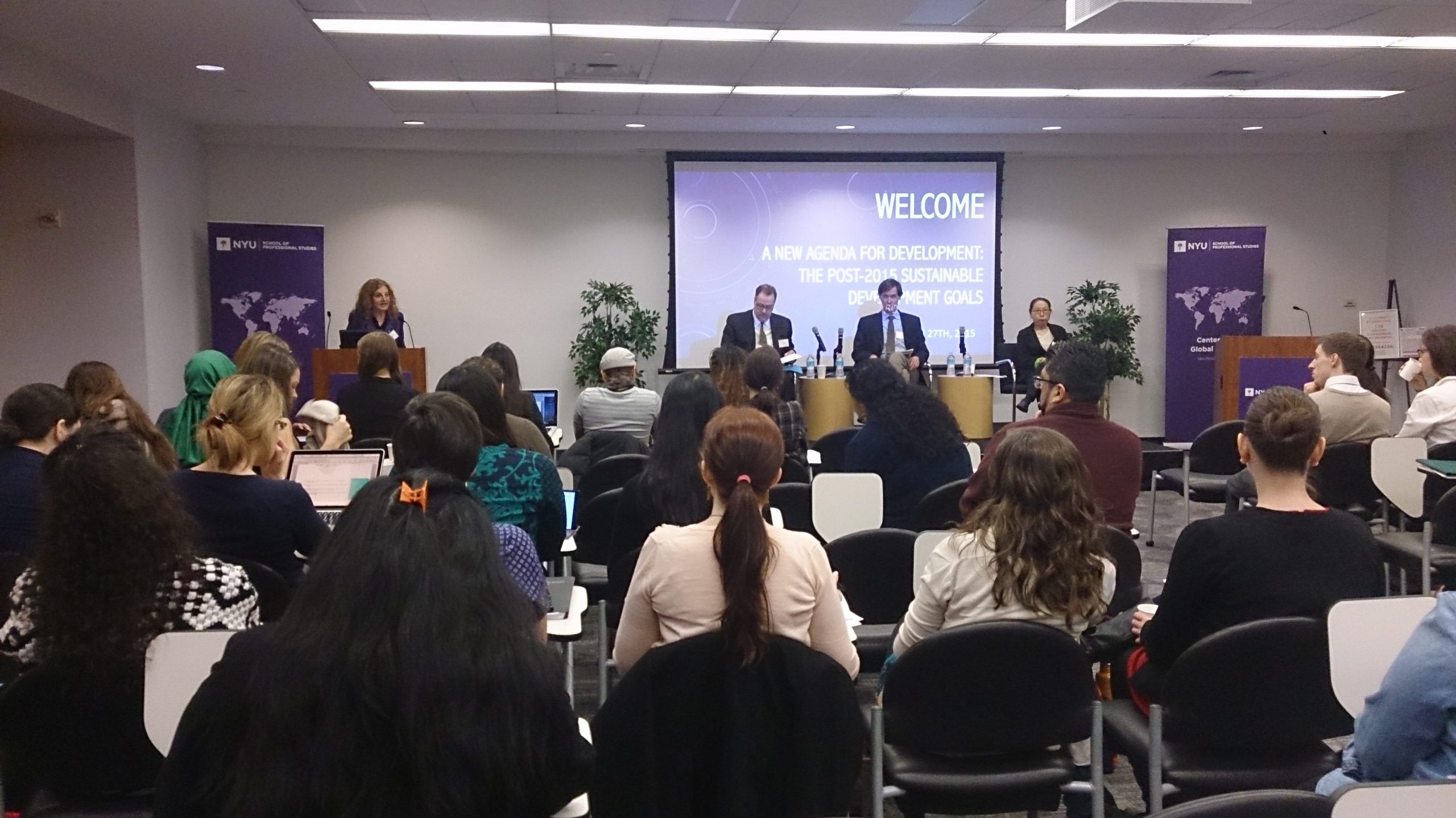As part of a workshop organised by the New York University Center for Global Affairs on the new Sustainable Development Goals (SDGs), QUNO NY Director Andrew Tomlinson was one of two speakers for the opening plenary session, along with Professor Sakiko Fukuda-Parr from the New School for Public Engagement. Andrew provided a detailed overview of the lengthy process to replace the Millennium Development Goals (MDGs) with the new SDGs framework, and noted the contrasting experience of civil society engagement in each process. A lively interactive session followed the opening remarks, during which a range of insights were shared highlighting the challenges that remained for the numerous stakeholders engaged in the vast inter-governmental negotiating process at the UN throughout 2015.

Myanmar “sham elections”: QUNO hosts Quaker House briefing
On 2 December, the Quaker UN Office hosted diplomats at Quaker House for a private briefing in advance of the elections in Myanmar that began on 28 December 2025. QUNO Director, Sarah Clarke, opened the meeting, noting that “the world will be watching carefully to see how the international community responds to the vote.” Sean Dunne, an expert who has supported election observation with the UN and the Carter Center, including in Myanmar, served as an outside briefer. In his remarks, Sean emphasized that the Myanmar general elections, which are being conducted by the military regime that overthrew the democratically elected government following elections in 2020, “fail to meet any recognized international benchmark for credibility or genuineness.” Sean concurred with UN experts, numerous Human Rights organizations, and media outlets describing the elections as a “charade” or “sham election” intended to “solicit recognition from foreign governments and legitimize the continuation of military rule, rather than reflect the genuine will of the Myanmar people.” In Myanmar, voting kicked off on 28 December 2025, with polls being held in roughly a third of Myanmar’s townships. Despite two more voting phases scheduled on 11 and 25 January 2026, several million people, 56 townships, and numerous political parties, including the winner of Myanmar’s last credible election, the National League for Democracy, have been excluded by the military or have chosen not to participate. As Sean explained, these exclusionary factors amount to “an incredibly sophisticated form of election engineering.” The implementation of biometric voting and surveillance technology, new laws criminalizing criticism of the election, and manipulation of representative quotas in Myanmar’s […]






